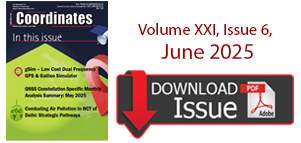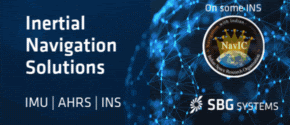| Galileo Update, News Archives | |
NEWSBRIEFS – Galileo update
|
||||
Five Nation Consortium focuses on receivers for Galileo GPS systemBritish consultancy PA Consulting Group, London, is to lead a five nation consortium to look into the enabling technologies needed to develop receivers for Europe’s Galileo GPS location based system. The two year project, funded to the tune of Euros 6 million by the European Commission through grants from the sixth Framework Programme, is dubbed GREAT, for Galileo REceiver for the mAss market. The Consortium comprises Spanish group Acorde, a specialst in RF design for satellite and communications systems; German Aerospace Center DLR, the Tampere University of Technology, specifically the Finnish University’s group specializing in algorithm design for GNSS systems; and u-blox AG – a Swiss fabless developer and manufacturer of GPS chipsets and GPS receiver modules. The project will comprise three distinct phases – core technology development, prototyping and testing – achieving major blocks of demonstrable baseband IP that, the group says, will allow further developments to be kick-started. Initial target of the project is the development of front-end RF designs, as well as the algorithms and baseband technology to allow the Galileo signal to be used in indoor locations. www.eetimes.com Europe’s Galileo satellite’s secret codes crackedMembers of Cornell’s GPS laboratory have cracked the so-called Pseudo Random Number (PRN) codes of Europe’s first global navigation satellite. This will provide free access to consumers who use navigation devices, including handheld receivers and systems installed in vehicles that need PRNs to listen to satellites. GPS satellites, put into orbit by the Department of Defense, are funded by U.S. taxpayers, and the signal is free. Galileo, on the other hand is charging a fee for PRN codes. The codes were extracted by Mark Psiaki, an associate professor of mechanical and aerospace engineering at Cornell and co-leader of Cornell’s GPS Laboratory and his team. By mid- March the team had derived their first estimates of the codes. www.news.cornell.edu ESA’s Navigation Facility ready for the futureESA’s recently opened Navigation Facility has fast become a world-class provider of highly accurate navigation information, significantly enhancing data from cornerstone systems including GPS, EGNOS and – soon – Galileo. In full operation since February 2006, ESA’s Navigation Facility, located at ESOC, the European Space Operations Centre, is producing a growing series of processed data products providing some of the world’s most accurate orbit and clock calculations related to GNSS, or global navigation satellite systems. The facility is directly connected to a network of 44 GPS signal receivers located worldwide, and can receive data from several hundred others. These receivers monitor signals from GPS satellites and relay them to just a handful of highly specialised processing centres, including ESOC’s Navigation Facility. These in turn process the raw data into valuable atmospheric and geoscience information sets. |
||||











 (No Ratings Yet)
(No Ratings Yet)





